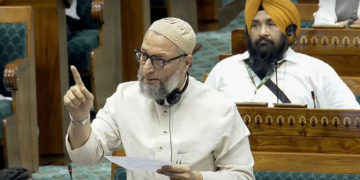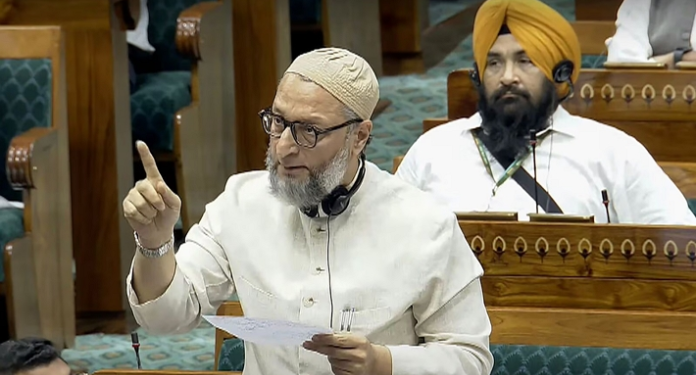The Aam Aadmi Party (AAP) has joined Congress and Asaduddin Owaisi’s AIMIM in challenging the Waqf Amendment Bill in the Supreme Court. The controversial legislation, which seeks to amend the 1995 law governing Waqf properties, is awaiting the President’s assent after passing through both Houses of Parliament.
The proposed amendments have sparked concern among opposition parties, with many arguing that the bill is discriminatory and targets Muslims. AAP MLA Amanatullah Khan, who filed the plea, contends that the law will undermine the religious and cultural autonomy of Muslims. He argues that the government’s interference in Waqf affairs threatens the rights of minorities to manage their religious and charitable institutions independently.
The government, on the other hand, maintains that the law is beneficial for Muslim women and aims to ensure transparency in the management of Waqf properties. However, Khan’s petition challenges the constitutional validity of the bill, claiming it violates fundamental rights, including the right to equality, freedom to manage religious affairs, and the rights of minorities. Khan further asserts that the bill allows for arbitrary executive intervention, thus undermining the rights of Muslims to manage their own institutions.
Khan’s petition follows similar challenges from Congress MP Mohammad Jawed and Asaduddin Owaisi. Jawed, who was involved in the joint parliamentary committee on the bill, claims that the law discriminates against Muslims by imposing restrictions not applied to the governance of other religious institutions. A key point of contention is a provision in the bill that allows non-Muslim members to be included in Waqf councils and state boards. This provision does not exist for other religious boards, such as the Hindu Endowment Board or Jain Endowment Board, and is seen by Owaisi as a violation of the Constitution.
Owaisi has strongly criticized the bill, accusing the BJP of using its parliamentary majority not to reform but to diminish the rights of Muslims. Speaking to NDTV, Owaisi stated that the law represents an attack on Muslims, claiming that the BJP is waging a “war on Muslims” by enacting such legislation. BJP MP Ravi Shankar Prasad defended the bill, arguing that it would bring much-needed transparency by making Waqf boards more accountable. He also sought to allay concerns, stating that no mosque or graveyard would be affected by the bill.
The Waqf Amendment Bill passed in the Lok Sabha on Thursday with 288 votes in favor and 232 against, following a heated debate between opposition and treasury benches. The bill then cleared the Rajya Sabha with 128 votes in favor and 95 against.
Following the passage of the bill, protests erupted in several cities, including Kolkata, Chennai, and Ahmedabad, especially after Friday’s prayers. The opposition remains vocal in its criticism, highlighting the divisive nature of the legislation and its potential to impact the autonomy of Muslim institutions.
Also Read: Unity in Values: Non-Muslim and Muslim Stand Together to Uphold Ramadan Traditions 2025















 Categories
Categories









